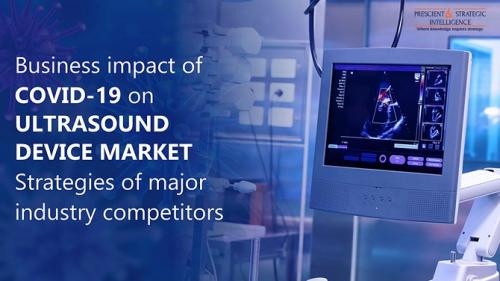What are the Factors Causing the Boom of the Ultrasound Device Market?

There was a time
when people used to be scared if they heard the doctor say that they have to go
through a surgical procedure for therapeutic purposes. However, now the
situation has changed radically, and due to technological advancements, the
preference for minimally invasive surgeries has been increasing rapidly. A
minimally invasive surgical procedure is associated with safety and lower
postoperative patient morbidity as opposed to the traditional approach for the
same operation. Since the emergence of this technique, it was predicted that
more than 80% of all surgical procedures will be performed with some form of
minimal invasiveness.
These procedures
often make use of ultrasound devices; thus, their growing prevalence is also
resulting in the rising need for ultrasound devices. In these devices,
ultrasound waves are produced by a transducer that emits ultrasound waves, as
well as detects the ultrasound echoes which are reflected back. The transducer
sends out a beam of sound waves into the body, which are sent back to the
transducer by the tissues in the path of the beam. The echoes generate
electrical signals that are sent to the ultrasound scanner, which then
calculates the distance from the transducer to the tissue boundary. These distances
are utilized for producing 2D images of tissues and organs.
These devices can be
cart/trolley-based or portable/handheld/compact, between which, the demand for
portable/handheld/compact devices is predicted to grow faster in the coming
years, owing to their ease of use in remote locations. Ultrasound devices have
a number of applications, namely obstetrics and gynecology, cardiology,
urology, general radiology/imaging, and vascular. While the demand for ultrasound
devices was the highest for general radiology/imaging applications in the past,
their requirement for cardiology applications is also expected to grow
substantially in the near future. This can be majorly ascribed to the surging
prevalence of heart diseases across the globe.
In the past, Europe
emerged as the largest ultrasound
device market, which is owing to
the rising preference for minimally invasive procedures and increasing number
of product approvals in the region. In addition to this, the surging incidence
of chronic diseases is also resulting in a rising requirement for diagnostic
and therapeutic ultrasound devices in Europe. Other than this, the demand for
these devices is also projected to rise in the Asia-Pacific region in the years
to come.
Hence, the
requirement for ultrasound devices is rising due to the growing preference for
minimally invasive procedures and increasing prevalence of chronic diseases.
Post Your Ad Here
Comments